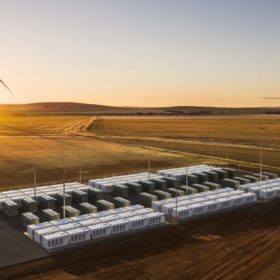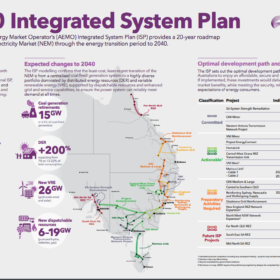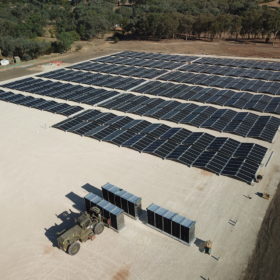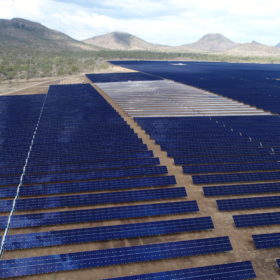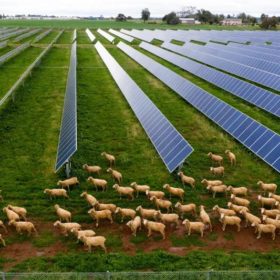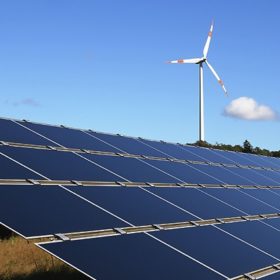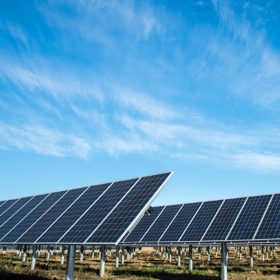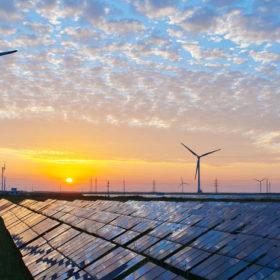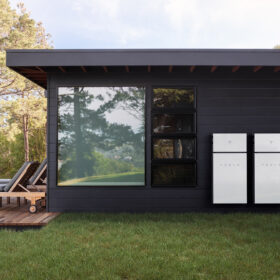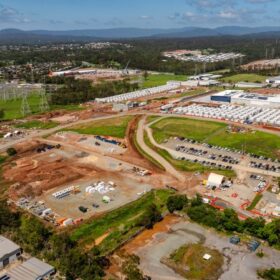Relocatable solar mounts to reduce big-solar install costs by 30%
A Perth-based innovator has designed a secure solar-panel mounting system that enables super-fast installation of medium-to-large-scale projects, and lets them be relocated as needed.
Hornsdale posts big first-half revenue for Neoen, solar remains consistent despite poor conditions
Neoen’s Hornsdale Power Reserve has gone to work in the first half of 2020, virtually tripling the French renewables developer’s storage revenue on comparative 2019 levels. However, this growth was largely caused by a one-off event, and a slower Q2 highlights the need for FCAS policy renewal. Neoen’s Australian solar revenues could also achieve little more than consistency thanks to poor conditions.
AEMO’s 2020 ISP: A roadmap to the world’s fastest energy transition
If it was designed with a focus on reliability, security and the lowest cost for consumers, Australia’s main electricity grid would see periods in which nearly 90% of demand is met by renewable generation. A diverse portfolio of distributed energy resources and large-scale solar and wind generation supported mainly by pumped hydro and batteries would ensure the least-cost transition as the nation’s coal plants retire. Adequate investment in transmission infrastructure will be instrumental in making this a reality.
Federal government awards major project status to Sun Cable’s 10 GW solar plan
The Australian federal government is fast-tracking the world’s biggest solar and storage project in the sun-drenched Tennant Creek region that aims to power Darwin and export solar from the outback to Singapore and eventually Indonesia via a submarine transmission link.
1 GW of solar projects in North Queensland could be curtailed to zero
New system strength challenges have been identified in North Queensland putting the output of nearly 800 MW of additional solar projects at risk.
Parkes transmitted the moon, now it’s transmitting the sun
The New South Wales town of Parkes, famous for its involvement in the Apollo 11 Moon landing, is set to play a part in another scientific wonder, the transition to renewable energy, after the NSW Government approved the development of the 80 MW Quorn Park Solar Farm. A small step in the plan , but a giant leap for the planet.
Queensland election 2020: A chance for renewables-driven economic bonanza
As Queenslanders ready to head to the polls, the Clean Energy Council has reminded all parties about the economic opportunity presented by the state’s solar and wind resources.
Australia’s renewables pipeline continues to grow at record speed led by solar PV
The Australian renewables sector was not immune to a host of challenges that marked the first half of the year, but the pipeline of renewable energy projects in the country reached new heights. While new construction dipped to a four-year low and financial close remained out of reach for a great number of projects, the second half of the year is looking more positive, according to Norwegian consultancy Rystad Energy.
Industry super fund calls on Govt to heed investors and end policy vacuum
Hesta, a leading industry superannuation fund trusted by 860,000 Australians, has joined a host of other major investment firms nationwide calling on the Federal Government to encourage large-scale renewable investment by setting an emissions target and cleaning up its strategy.
Monash University gets ARENA funding to investigate renewables integration into weak grids
Researchers at Monash University will conduct a desktop study to explore issues and strategies associated with connecting inverter-based generation such as batteries, solar, and wind into weaker parts of the National Electricity Market.

